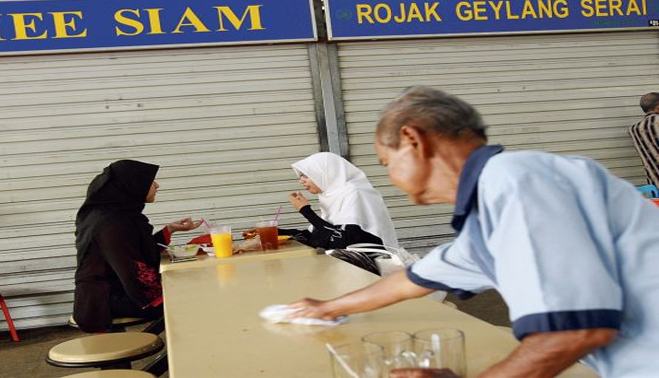![]() Home > Singapore
Home > Singapore
NWC Guidelines ‘Unlikely To Play Big Role In Firms’ Decisions’

An analyst noted that the relevance of NWC guidelines would diminish as more firms adopt the Progressive Wage Model in the cleaning, security and landscape sectors.
![]() June 1st, 2016 | 08:41 AM |
June 1st, 2016 | 08:41 AM | ![]() 1738 views
1738 views
SINGAPORE
Economists say that market forces will trump NWC’s wage recommendations
Cleaning firm LS2 typically gives its lower-wage workers an annual increment of S$30 to S$50, and this year is likely to be no different.
While this falls short of the National Wages Council’s (NWC) recommendation of a S$50 to S$65 increment for workers earning up to S$1,100, general manager Dennis Tan said businesses have to consider other factors when deciding on increments: Individual performance and the type of cleaning jobs they take up.
A similar situation is seen at Titan Facilities Management, where the NWC guidelines take a backseat during its annual increment exercise.
“I don’t just follow the (NWC) guidelines. (Increments) depend on the company’s budget, and it also depends on the market supply,” said director Lee Chin Khoon. “So far, no complaints from my workers.”
While the NWC this year called for a range of increments in order to give employers more flexibility amid a challenging business environment, firms TODAY spoke to said it was unlikely to play a big role in their calculations for wage increments. This is because the decision depends largely on business performance, they said.
They also noted that the proportion of workers earning S$1,100 and less is small. Of the 1,000 cleaners employed at LS2, only 30 to 50 still take home a paycheck of under S$1,100, said Mr Tan. Besides the annual increment, the firm also offers a one-off incentive for staff members, up to S$200.
At Titan, about 5 to 10 per cent of the company’s 350 cleaners earn below S$1,100 and, as with previous years, cleaners are likely to receive an increment of S$50 this year, said Mr Lee.
Economists felt the decision by NWC to offer a range of increments rather than a single quantum was a good move, but agreed that market forces would trump the recommendations. “It’s like saying, ‘I leave it up to you’. Those who are doing well can give more, and those who aren’t doing well can give less,” said UOB economist Francis Tan.
UniSIM senior lecturer Walter Theseira said that given the tight labour market, and how employers find it difficult to find enough locals to take up lower-wage jobs, employers may need to implement the recommendations in order to stay competitive in the market for lower-wage workers. “Of course, the costs will have to be paid through a combination of lower profits and higher upstream business costs,” he added.
On whether the NWC wage guidelines are still relevant, given the shrinking number of workers earning under S$1,100, OCBC economist Selena Ling felt that the council was “setting the tone”, especially for the public sector. “Gone are the days when NWC carried a lot more clout in terms of the wage negotiations,” she said.
Mr Tan said the relevance of these guidelines would diminish as more companies adopt the Progressive Wage Model in the cleaning, security and landscape sectors, which stipulate basic wages as part of licensing conditions. “The pool of people (affected) is getting smaller, but the guidelines can still marginally attract people … such as older workers coming back into the workforce. It protects the interests of low-income earners,” he added.
Posting on Facebook yesterday, labour parliamentarian Zainal Sapari proposed incentivising companies which adhered to the recommendations, especially those which hire low-wage workers.
“Unless all industry stakeholders work together and uplift the outsourced industries as a whole, it may be a long arduous journey to improve the workers’ wages in a sustainable manner,” said Mr Zainal.
“Job roles and operations can be outsourced, but responsibilities cannot be outsourced.”
Source:
courtesy of TODAY
by Valerie Koh
If you have any stories or news that you would like to share with the global online community, please feel free to share it with us by contacting us directly at [email protected]